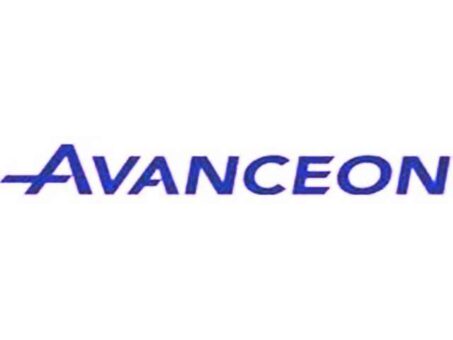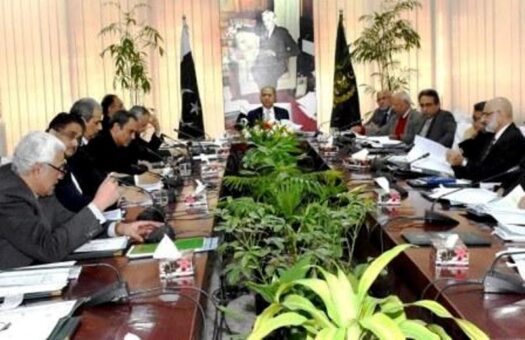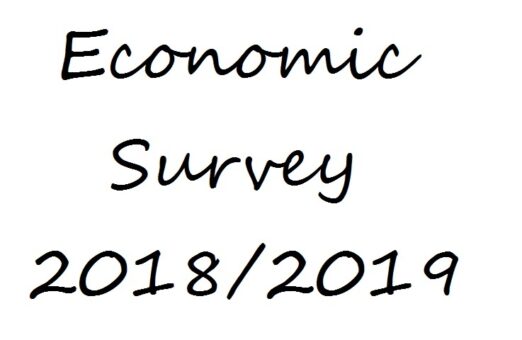Karachi, January 8, 2026 — Fatima Fertilizer Company Limited (FFC) on Thursday disclosed significant information regarding the allocation and pricing of natural gas from the Mari Field to its wholly owned subsidiary, Fatimafert Limited. The announcement was made through an official communication shared with the Pakistan Stock Exchange (PSX).
(more…)Tag: fertilizer
-

Federal Minister Criticizes Fatima Fertilizer for Unjust Price Hike
Islamabad, April 27, 2024 – In a bold move that has stirred significant controversy, Federal Minister for Industries and Production, Rana Tanveer Hussain, has called out Fatima Fertilizer Limited for its recent unilateral decision to hike the price of Sarsabz Urea by Rs 561 per bag.
(more…) -

CCP Issues Notices to Fertilizer Manufacturers for Price Fixing
Islamabad, April 2, 2024 – The Competition Commission of Pakistan (CCP) has taken decisive action against the Fertilizer Manufacturers of Pakistan Advisory Council (FMPAC) and six major fertilizer companies for allegedly engaging in price fixing practices regarding urea, a move that could have far-reaching consequences for both farmers and consumers.
(more…) -

Fertilizer Manufacturers Advocate for Equity in Gas Pricing
Karachi, March 7, 2024 – Fertilizer manufacturers in Pakistan are urging the government to create a level playing field by eliminating discriminatory gas pricing, a move they believe will foster new investments, enhance efficiency, and guarantee ample urea availability for the country’s farmers.
(more…) -

Fertilizer Industry Pivotal in Driving Agricultural Transformation under Green Initiative Pakistan
Karachi, September 07 – In a significant development, Pakistan finds itself as the only country among the top five global urea consumers—comprising China, Brazil, the USA, and India—that is not actively investing in expanding its production capacity over the next five years. This situation has emerged despite Pakistan facing a rapidly growing population.
(more…) -

Avanceon partners to upgrade fertilizer company
LAHORE: Avanceon Limited on Tuesday announced that it partnered with Compressor Controls Corporation (CCC) to upgrade a fertilizer company.
In a communication sent to Pakistan Stock Exchange (PSX) Avanceon Limited said it had partnered with Compressor Controls Corporation (CCC) to retrofit a high value upgradation project for the one of the largest fertilizer companies in Pakistan.
READ MORE: FFBL declares Rs1.7 billion in 2QCY22
The project will entail Total Train Solution (Anti-Surge, Speed Control and Performance Control) for improvement and upgradation of critical compressor turbine systems to achieve smooth and energy efficient operations for the customer.
Avanceon is a Channel Partner of CCC for the Pakistan region. CCC is strategically positioned around the globe to ensure its customers receive the local expertise and dedicated service they expect. Avanceon has more than three decades of expertise and experience within the industrial automation space. It is constantly looking to improve its services portfolio by collaborating with like-minded partners to create value for customers and improve operational effectiveness.
READ MORE: Hyundai announces second quarter financial results
Avanceon and CCC jointly aim to achieve a totally integrated system that provides safe and efficient surge protection with stable and precise process control for the customer. The scope of work for this project entails,
• Detailed Site Audit for Reliable and Energy Efficient Operations
• Supply, Installation, Programming, and Supervision of Compressor Control System with 1. Anti-Surge Control 2. Performance Control 3. Speed Control
• Start Up and Performance Testing Services
READ MORE: PTCL declares 39% growth in half year net profit
Avanceon conducted comprehensive site surveys and discussed the operations with various personnel (Process, Operations, Machinery, and Instrumentation) to improve compressor operations. CCC proposed the control system that would address the customer’s primary control objectives.
With this project, Avanceon and CCC aim to achieve anti surge control quality, improve compressor availability, save energy, reduce operator interventions and human error, critical event archiving for diagnostics, and improve overall plant efficiency for the customer.
-

FBR makes tax stamps mandatory for fertilizer bags
ISLAMABAD: The Federal Board of Revenue (FBR) on Tuesday made tax stamps mandatory for packing and supply of fertilizer bags.
The FBR issued Sales Tax General Order (STGO) No. 15 of 2022 to implement track and trace system under SRO 250/2019 related to fertilizer bags.
The FBR said that the provisions of Section 40C (2) of the Sales Tax Act, 1990 read with Rule 150ZF of the Sales Tax Rules, 2006 mandate the revenue body to notify the date for the implementation of Electronic Monitoring of production and sales of goods in the manner prescribed in the law on all manufacturing sites of notified sectors.
READ MORE: FBR directed to bring entire sugar supply chain into tax net
The board further said in exercise of the powers conferred under Section 40C(2) of the Sales tax Act, 1990 and Rule 150ZF of the Sales Tax Rules, 2006 it is hereby notified that no fertilizer bag shall be allowed to be removed from a production site, factory premises or manufacturing plant or import station without affixation of tax stamps/Unique Identification Markings (UlMs) with effect from July 01, 2022, which are to be obtained/procured from FBR’s Licensee M/s. AJCL/MITAS/Authentix Consortium.
Under SRO 250/2019 it has been made mandatory for goods to be affixed with tax stamps, banderoles, stickers, labels, barcodes, etc.
READ MORE: IR officers’ bid to deny tax refund adjustment criticized
It said that every package, including a tin, container or bottle, of the specified goods whether manufactured or imported shall be affixed or printed a tax stamp, banderole, sticker, label, barcode etc.
Provided that in respect of such specified goods which are exempt or meant for export tax stamps shall not be required to be affixed thereon, but shall be clearly, legibly and indelibly marked as “Exempt Goods” or “For Export”, as the case may be.
-

ECC bans export of wheat to control domestic prices
ISLAMABAD: Economic Coordination Committee of the Cabinet (ECC) on Wednesday decided to impose ban on export of wheat and related products in order to control prices in the local market.
Adviser to Prime Minister on Finance and Revenue, Dr. Abdul Hafeez Shaikh, chaired the meeting of the ECC.
A report on the wheat situation in the country was presented in the ECC by Ministry of National Food Security and Research.
It was briefed during the meeting that adequate stocks of wheat are available in the country to cater for the needs of the population.
It was also highlighted that the procured quantity of wheat during this year is 33% less than the procured quantities of wheat during the corresponding periods of last year.
“The recent hike in prices of wheat and wheat flour is also a point of concern. The ECC decided to impose a ban on export of wheat/wheat flour and also asked that a meeting of National Price Monitoring Committee may be convened to suggest measures to control the price hike trend of ‘Roti’ and other wheat products in the local market with the cooperation of the provincial governments,” said a statement.
The ECC also approved National Fertilizer Marketing Limited (NFML) to fix the Dealer Transfer Price (DTP) of 50 kg imported Urea Bag at Rs.1800 which is Rs.166 less than the prevailing average market price of Sona Urea i.e. Rs.1966 per 50 kg bag.
The difference in Urea import price and approved dealer transfer price for NFML dealers has been estimated at Rs.937.92 million; NFML has also been directed to ensure enforcement of this price through coordination with provincial governments.
The ECC allowed PIA Corporation Limited to make a re-appropriation in its already approved budget of Rs.24 billion for the upgradation of in-flight entertainment (IFE) system of its fleet for 8 Boeing-777 aircrafts. The project will cost Rs.700 million.
It was also briefed during the meeting that the measures will improve the occupancy of the airline to 80 per cent from the current level of 70 per cent.
The ECC endorsed the decision of the Governing Council of Pakistan Bureau of Statistics to change the base of price statistics from 2007-08 to 2015-16.
The new base 2015-16 of price statistics has the following features:
Inclusion of rural market.
Introduction of population weight based on recent Population Censes 2017.
Computation of indices based on Weighted Geometric Mean.
Introduction of consumption quintiles instead of income quintiles.
Introduction of consumer weighted approach to compute gas prices for combined income group.
Introduction of GST, other taxes Fuel Price Adjustment to compute electricity tariffs using consumer weighted approach.
It was also decided that for the purpose of comparative analysis, the old series of 2007-08 will continue to be published for another year along with the new series of 2015-16.
On the summary moved by Ministry of Commerce and Textile, it was decided that the scrap slag, ash and residues containing metals, arsenic or their compounds (containing mainly Aluminum under PCT 2620.4000) may be moved from Appendix-A (Banned Items) to Appendix-B (Restricted Items) of the Import Policy Order, 2016.
However, in order to forestall the chances of import of hazardous waste, the import may be subject to the following conditions:
(i) Importable only by industrial consumer having recycling facilities, subject to NOC from Ministry of Climate Change and duly certified by provincial Environmental Protection Agency (Federal EPA, in case of Islamabad Capital Territory).
(ii) Provision of a pre-shipment Inspection Certificate and consent of Focal Point of Basel Convention from the country of export to the effect that the waste/scrap is non-hazardous as defined in the Basel Convention.
(iii) The imported consignments of the registered recycling plants shall be cleared from seaport only.
The ECC also considered and approved the notification of Minimum Indicative Prices (MIP) of tobacco for year 2019-20.
As per section 8 of the Pakistan Tobacco Board Ordinance 1968, the MIP for different grades of various types of tobacco are to be notified by the Federal Government.
The following prices were suggested for notification: S.No. TYPES OF TOBACCO MINIMUM INDICATIVE PRICE PER KG FOR 2019-20 CROP 1. FCV Tobacco (Plain) Rs.190.63 2. FCV Tobacco (Sub-Mountainous) Rs.218.77 3. WP Tobacco Rs.82.85 4. Burley Tobacco Rs.150.54 5. DAC Tobacco Rs.94.76.
The ECC also allowed that new PCT codes, as created in the Pakistan Customs Tariff through the Finance Act, 2019, may also be incorporated in SRO 693(I)/2006 dated 01.07.2006 so that levy of additional customs duty collected on those parts of Sport Utility Vehicles (SUVs) of engine capacities 1001cc to 1500cc and 1501cc to 1800cc which have been localized, may be appropriately accounted for under separate PCT codes.
The report on National Poverty Graduation Programme of US $ 82.60 million was also submitted for compliance of the ECC by the Secretary, Economic Affairs Division.
Among others, the meeting was attended by Minister for National Food Security & Research, Sahibzada Muhammad Mehboob Sultan; Minister for Planning, Development& Reform, Makhdoom Khusro Bukhtiar, Minister for Privatization, Muhammadmian Soomro, Minister for Railways, Sheikh Rashid Ahmed, Adviser to PM on Commerce, Textile, Industry & Production and Investment, Abdul Razak Dawood; Adviser on Institutional Reforms and Austerity, Dr. Ishrat Hussain; SAPM on Petroleum, Nadeem Babar; Governor State Bank of Pakistan, Reza Baqir and Chairman, Board of Investment, Zubair Gilani.
-

Agriculture posts meager 0.85 percent growth on reduction in cultivation area
ISLAMABAD: The agriculture has posted meagre 0.85 percent growth in 2018/2019 against the target of 3.8 percent, said Economic Survey 2018/2019 on Monday.
It said that the performance of agriculture during 2018/2019 remained subdued.
The under-performance of agriculture sector hinged upon reduction in the area of cultivation, lower water availability and drop in fertilizer off take. The crops sector has witnessed negative growth of 4.43 percent against the target 3.6 percent on the back of decline in growth of important crops by (-6.55) percent.
Sugarcane production declined by (-19.4) percent to 67.174 million tons, Cotton (-17.5 percent) to 9.861 million bales and Rice (-3.3 percent) to 7.202 million tonnes while production of Maize crop increased by 6.9 percent to 6.309 million tonnes and production of wheat crop marginally increased by 0.5 percent to 25.195 million tonnes. Other crops having share of 11.21 percent in agriculture value addition and 2.08 percent in GDP, showed growth of 1.95 mainly due to increase in production of pulses and oilseeds.
Cotton ginning declined by 12.74 percent due to decrease in production of cotton crop.
Livestock having share of 60.54 percent in agriculture and 11.22 percent in GDP, recorded the growth at 4.0 percent against the target of 3.8 percent.
The Fishing and Forestry sector having share of 2.10 percent each in agriculture value addition grew by 0.79 and 6.47 percent, respectively.
The strong growth in forestry is due to increase in timber production in Khyber Pakhtunkhwa in the range of 26.7 to 36.1 thousand cubic meters.
The gram production increased by 35.6 percent on account of higher yield due to favourable weather condition prevalent at the time of sowing. The production of Bajra increased by 3.2 percent.
The production of Barley, Rapeseed & Mustard and Tobacco remained constant while the production of Jowar witnessed a decline of 2.6 percent.
The production of Onion and Chillies witnessed increase of 2.0 percent to 2.12 thousand tonnes and 0.4 percent to 148.7 thousand tonnes respectively, as compared to production of last year.
However, the production of pulse Mash (Lentil), Moong and Potato decreased by 5.5 percent, 3.4 percent and 0.3 percent, respectively compared to last year’s production. While the production of Masoor pulse remained the same as last year’s production.
The total availability of water for the Kharif crops 2018 recorded 59.6 Million Acre Feet (MAF), which means it remained short by 11.2 percent against the average system usage of 67.1 MAF and by 14.9 percent as compared to Kharif 2017. During Rabi season 2018-19, the total water availability was recorded at 24.8 MAF showing an increase of 2.5 percent over Rabi 2017-18 and a decline of 31.9 percent from the normal availability of 36.4 MAF.
The domestic production of fertilizers during 2018-19 (July-March) increased by 2.6 per cent over the same period of previous year. This increase is due to functioning of two urea manufacturing plants (Agritech& Fatima Fertilizer) as supply of LNG was available on subsidized rates.
The imported fertilizer increased by 4.8 percent. Therefore, total availability of fertilizer increased by 3.2 percent during current fiscal year. Total off take of fertilizer nutrients decreased by 7.3 percent.
Nitrogen off take decreased by 2.89 percent and phosphate by 18.2 percent. Potash off take recorded an increase of 4.55 percent during 2018-19 (July-March). Reduction in fertilizers off take was due to its high prices.
In line with government’s priority for agriculture sector development, Agricultural Credit Advisory Committee (ACAC) has set the indicative agricultural credit disbursement targets at Rs 1,250 billion for FY 2018-19 to 50 agriculture lending institutions including 19 commercial banks, 2 specialized banks, 5 Islamic banks, 11 microfinance banks and 13 microfinance institutions/rural support programs (MFIs/RSPs).
During FY 2018-19 (July- March), the agriculture lending institutions have disbursed Rs. 805 billion which is 64.4 percent of the overall annual target of Rs. 1,250 billion and 20.8 percent higher than the disbursement of Rs. 666.2 billion made during corresponding period of last year.
The outstanding portfolio of agriculture loans has increased by 15.5 percent to Rs. 70.7 billion by end March, 2019.
Further, the agriculture outreach in terms of total borrowers has increased to 4.0 million, showing a rise of 8.2 percent over 3.72 million borrowers as of end June, 2018.